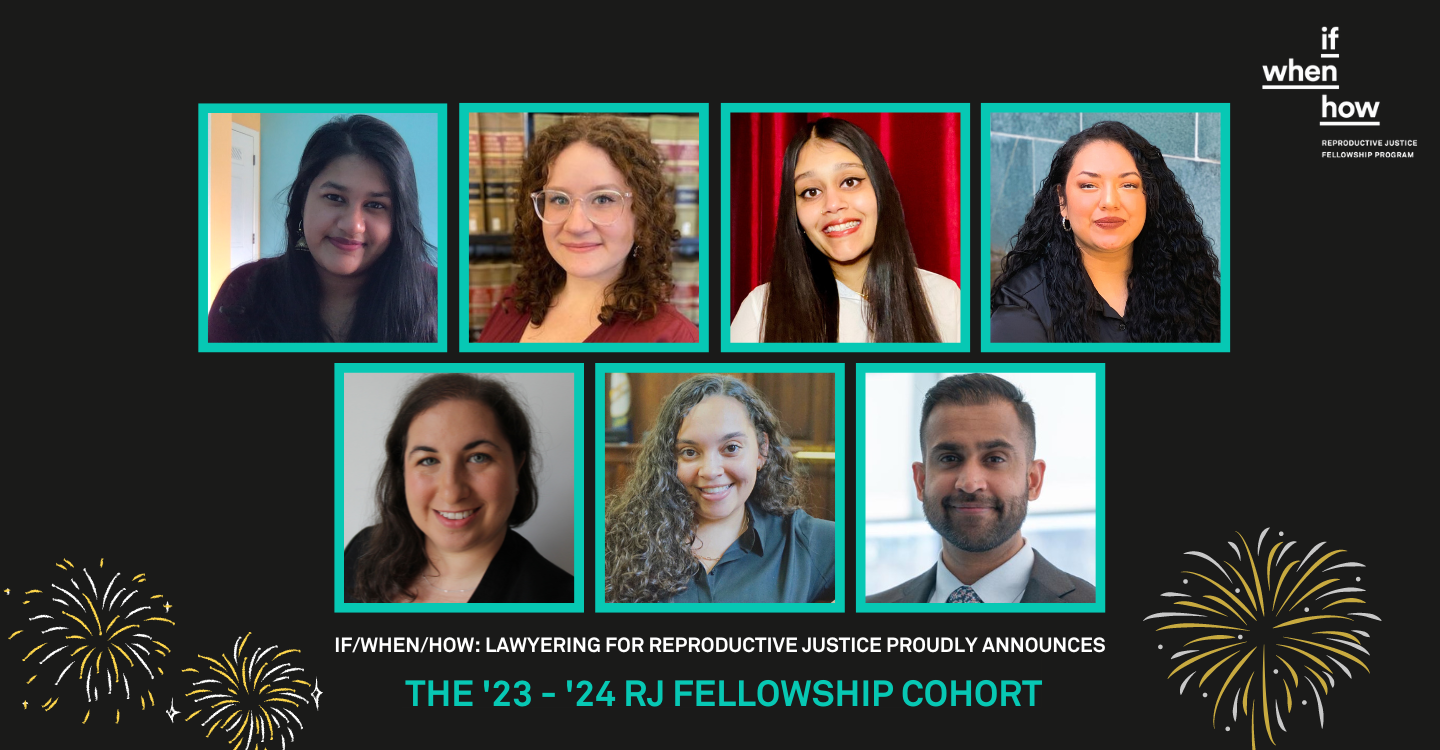By Maya Arigala
If/When/How’s Quick Question series highlights the work of our Reproductive Justice Fellows, introducing our network to the incredible advocates who are dedicating their lives to the movement to lawyer for reproductive justice. We’re so proud of the work they’re doing at placement organizations across the country.
Maya Arigala (George Washington University Law School ’23) has had a lifelong interest in civil rights and racial justice issues. Maya graduated from Reed College in 2020 with a B.A. in Comparative Literature, with a focus in Postcolonial Studies.
She was inspired to attend law school after serving as a legal assistant for the King County Housing Justice Project, an eviction prevention clinic representing low-income tenants.
During law school, Maya served as a student attorney for the Jacob Burns Community Legal Clinics. In this role, Maya worked on ongoing employment discrimination litigation at the D.C. Office of Human Rights. She gained additional experience in labor and employment litigation as an intern with the Lawyers’ Committee for Civil Rights in Spring 2023, where she partnered with their Economic Justice Project to build reproductive justice advocacy into their existing civil rights divisions.
In her third year of law school, Maya founded the Reproductive Data Privacy Initiative, established under GW Law’s Ethical Tech Initiative. In collaboration with fellow students, faculty, and technologists at various nonprofits, Maya hosted a public roundtable on reproductive data privacy and drafted a public education guide with information for students on protecting reproductive data.
We asked Maya to tell us a little about herself as she prepares to begin her Reproductive Justice Fellowship year at Positive Women’s Network-USA this fall.
If/When/How: Who are you — what’s your name, what pronouns do you use, etc.?*
Maya Arigala: My name is Maya Arigala, and I use she/her pronouns.
If/When/How: Where are you from?
MA: I’m from a small suburb in Washington State and have lived in the Pacific Northwest for most of my life. I moved to D.C. a couple of years ago for law school and am planning to stay in the area for at least a little longer!
If/When/How: Where are you going? (You can treat this question literally or existentially)
MA: Hopefully, somewhere empowering and transformative. The law is oftentimes a destructive force in marginalized people’s lives. I’m driven forward by a desire to change that.
If/When/How: Who drew you to reproductive justice work?
MA: The people in my life with limited access to reproductive care because of where they live or how much money they make. After Dobbs, a lot of loved ones looked to me for answers because I’m in law school. I wanted to have those answers, and I wanted to be a part of a movement that eliminates the barriers they face to reproductive freedom.
If/When/How: What are you most excited about going into the RJFP?
MA: I am excited to execute advocacy strategies that are made in partnership with the communities most affected by malicious reproductive health policies. I am also excited to build off of the work of fellow queer advocates of color who have been engaged in this space for decades.
